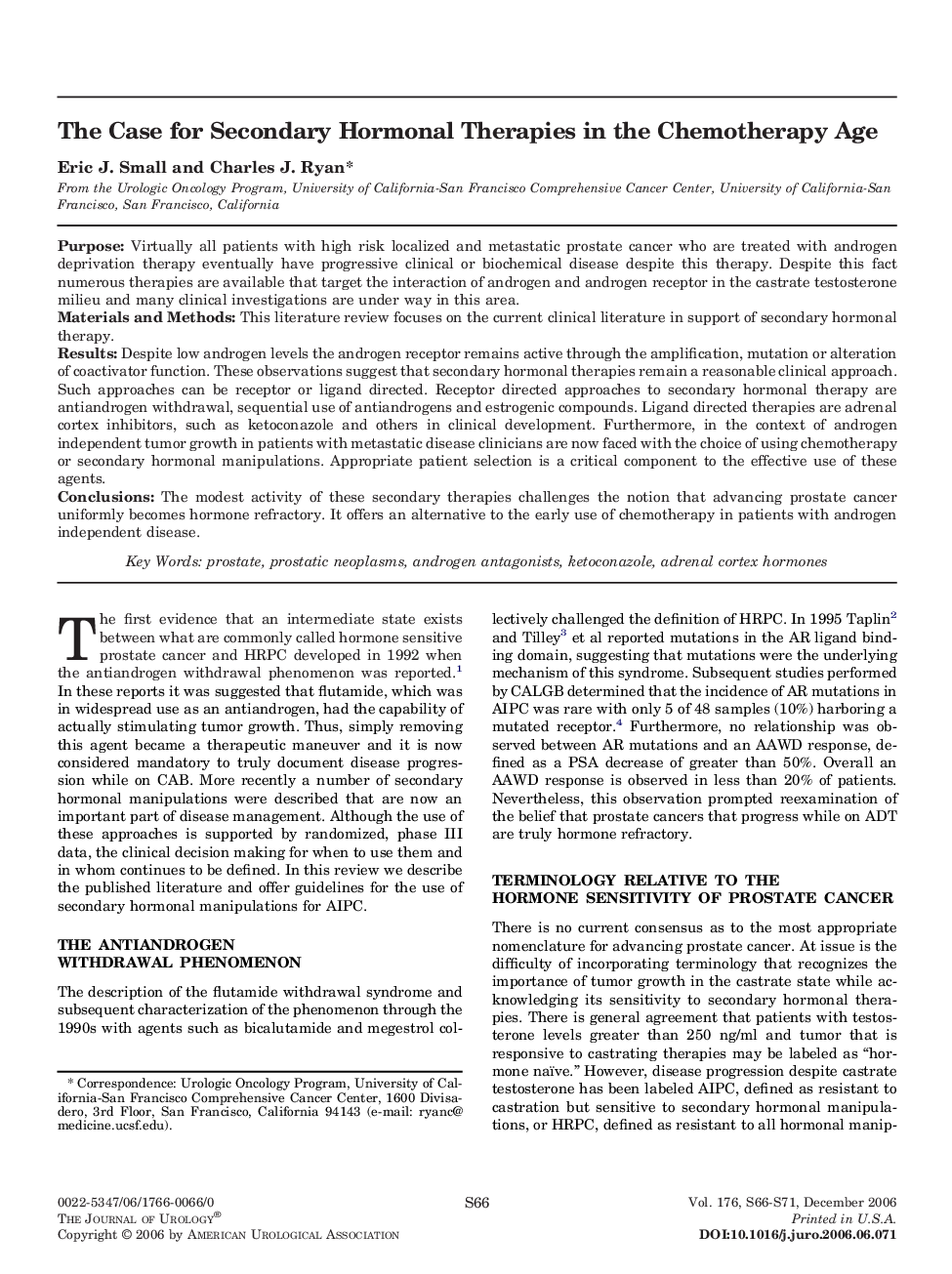| Article ID | Journal | Published Year | Pages | File Type |
|---|---|---|---|---|
| 3875028 | The Journal of Urology | 2006 | 6 Pages |
PurposeVirtually all patients with high risk localized and metastatic prostate cancer who are treated with androgen deprivation therapy eventually have progressive clinical or biochemical disease despite this therapy. Despite this fact numerous therapies are available that target the interaction of androgen and androgen receptor in the castrate testosterone milieu and many clinical investigations are under way in this area.Materials and MethodsThis literature review focuses on the current clinical literature in support of secondary hormonal therapy.ResultsDespite low androgen levels the androgen receptor remains active through the amplification, mutation or alteration of coactivator function. These observations suggest that secondary hormonal therapies remain a reasonable clinical approach. Such approaches can be receptor or ligand directed. Receptor directed approaches to secondary hormonal therapy are antiandrogen withdrawal, sequential use of antiandrogens and estrogenic compounds. Ligand directed therapies are adrenal cortex inhibitors, such as ketoconazole and others in clinical development. Furthermore, in the context of androgen independent tumor growth in patients with metastatic disease clinicians are now faced with the choice of using chemotherapy or secondary hormonal manipulations. Appropriate patient selection is a critical component to the effective use of these agents.ConclusionsThe modest activity of these secondary therapies challenges the notion that advancing prostate cancer uniformly becomes hormone refractory. It offers an alternative to the early use of chemotherapy in patients with androgen independent disease.
